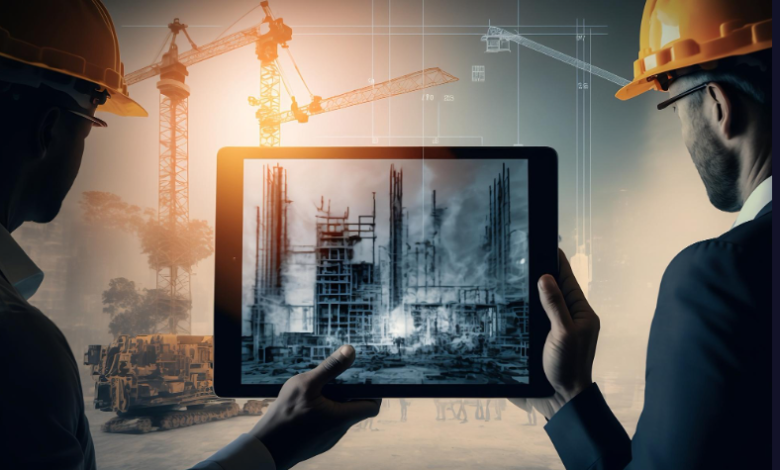The Influence of Technology in Elevating International Construction Company Standards

The construction industry has undergone a transformative evolution, significantly shaped by advancements in technology. For an international construction company, integrating innovative tools and systems is essential to meet the demands of a dynamic global market. As projects grow in complexity and scale, the adoption of cutting-edge technology becomes a fundamental part of maintaining high standards and delivering exceptional results. This blog delves into various technological advancements that are enhancing the operations and standards of global construction firms.
Digital Project Management Platforms
Digital project management platforms have revolutionized the way international construction companies oversee their projects. These platforms provide centralized systems where teams can collaborate seamlessly, track progress in real-time, and manage resources efficiently. With intuitive interfaces and robust features, they allow project managers to allocate tasks, set deadlines, and monitor milestones, ensuring everyone is on the same page.
Moreover, these platforms facilitate better communication among team members, contractors, and clients. By streamlining information sharing and updates, they reduce the likelihood of misunderstandings and errors, ultimately leading to more successful project outcomes. As a result, companies that adopt digital project management solutions can enhance productivity and achieve higher standards of quality and efficiency in their global operations.
Building Information Modeling (BIM) Integration
Building Information Modeling (BIM) integration is another significant advancement that is reshaping the construction landscape. BIM enables international construction companies to create detailed 3D models of their projects, encompassing architectural, structural, and engineering elements. This comprehensive visualization allows teams to identify potential challenges early in the design phase, facilitating proactive problem-solving.
BIM also enhances collaboration among various stakeholders. Architects, engineers, and contractors can work together in a virtual environment, ensuring that all components fit together seamlessly before construction begins. This integration not only saves time and resources but also elevates the overall quality of the finished project. As a result, BIM has become a vital tool for global construction companies striving to meet international standards.
Drone Technology and Aerial Surveying
The introduction of drone technology has transformed aerial surveying practices in the construction industry. Drones equipped with high-resolution cameras can capture detailed images and data from hard-to-reach areas, providing valuable insights into project sites. This technology allows international construction companies to conduct site assessments quickly and accurately, enhancing decision-making processes.
Additionally, drones can monitor construction progress over time, capturing real-time data that helps project managers identify discrepancies and make informed adjustments. The ability to gather comprehensive aerial views not only improves site safety but also contributes to the overall quality of the construction process. By incorporating drone technology, global construction firms can enhance their operational standards and ensure successful project completion.
IoT and Smart Sensors in Construction
The Internet of Things (IoT) and smart sensors are reshaping the way international construction companies approach site management and safety. By embedding sensors in equipment and structures, companies can collect real-time data on various parameters, such as temperature, humidity, and structural integrity. This data provides invaluable insights that enable proactive maintenance and operational efficiency.
Smart sensors also enhance safety on construction sites by monitoring conditions and alerting workers to potential hazards. For instance, sensors can detect excessive vibrations or structural anomalies, prompting immediate action to prevent accidents. By integrating IoT technology, global construction firms not only enhance safety standards but also improve overall project performance, leading to more successful outcomes.
Virtual and Augmented Reality Applications
Virtual and augmented reality applications are paving the way for innovative training and design experiences in the construction sector. These technologies allow international construction companies to create immersive environments where teams can visualize projects before they are built. By simulating real-world scenarios, workers can practice their skills and familiarize themselves with complex tasks in a safe environment.
Moreover, virtual reality can enhance client presentations by providing a realistic view of the final project. Clients can “walk through” designs, offering feedback that can be incorporated into the final product. This interactive approach not only improves communication but also elevates the overall client experience, aligning with the high standards expected from global construction firms.
Data Analytics and Predictive Maintenance
Data analytics is becoming a game-changer in the construction industry, allowing international construction companies to harness vast amounts of information for informed decision-making. By analyzing historical and real-time data, companies can identify trends, forecast potential issues, and optimize resource allocation.
Predictive maintenance is a key application of data analytics. By monitoring equipment performance and usage patterns, companies can schedule maintenance before breakdowns occur, minimizing downtime and reducing costs. This proactive approach ensures that projects remain on schedule and meet international standards for quality and efficiency. Through the effective use of data analytics, global construction firms can elevate their operational standards and enhance project outcomes.




